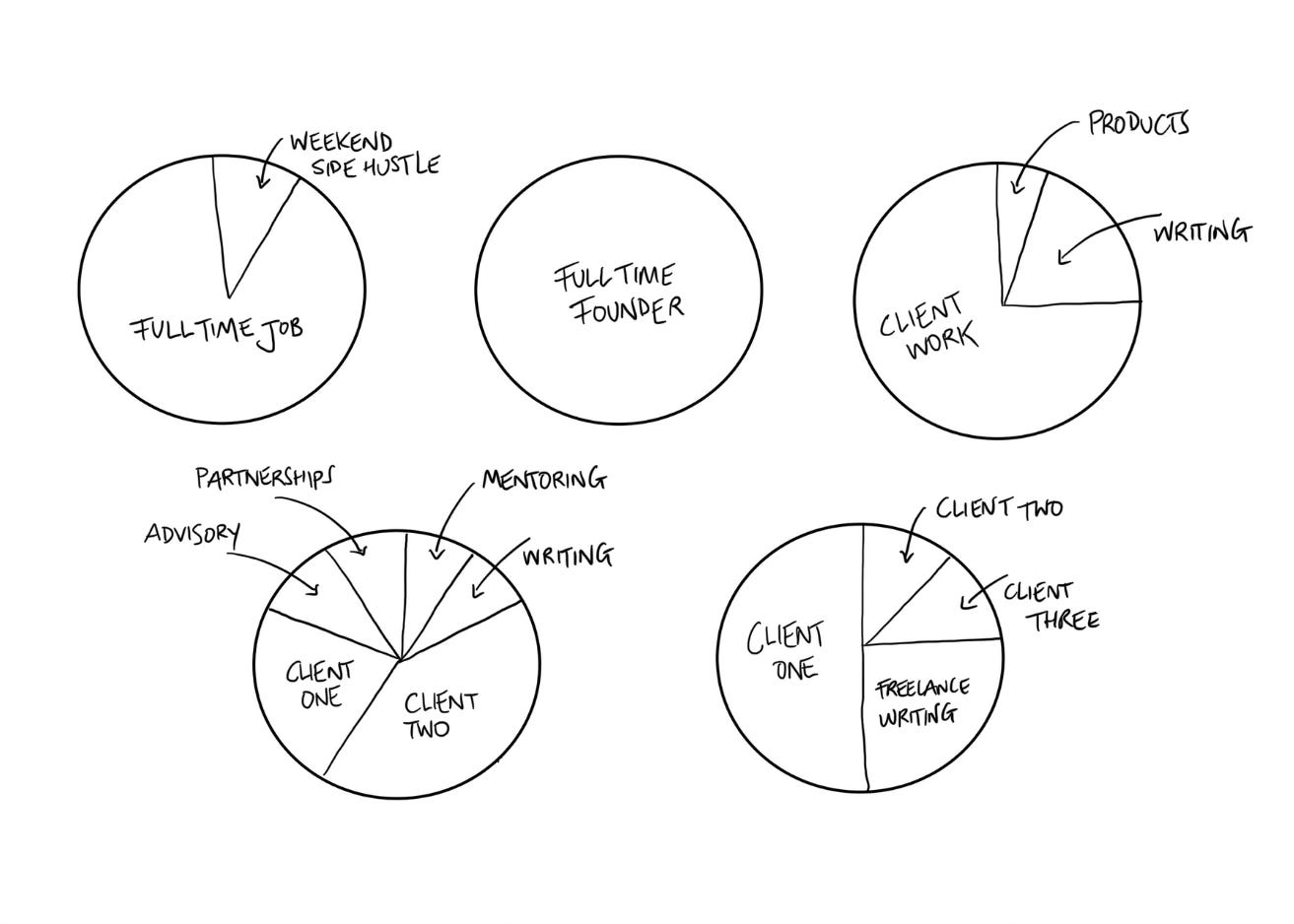WTF is a portfolio career?
The Portfolio Career Explained, Part 2
When I made the decision to move on from my former business, my goal was to get a job at a VC firm or as Chief of Staff at a Seed-Series A startup. I wanted stability and security, and if I’m being brutally honest (we’re friends now, right?), I wanted something notable to put on LinkedIn to help allay my fear of becoming irrelevant now that I was no longer a founder.
I started interviewing, and the full-time job search train left the station with me gladly on it.
But as I spoke to more and more people, I started opening myself up to the possibility that perhaps I didn’t need a full-time job. I started to believe in something else, something more. Perhaps I could create a career on my own terms, earning good money doing work I loved without selling my soul to a devil who stoked the flame of other people’s agendas. Perhaps I could build a body of work around my passions, interests and strengths. Perhaps I could help inspiring founders build their dreams, all while building my own.
It soon became clear that not only was this possible, the plan I had not yet fully articulated was in motion. I started winning project work as a consultant and then retainers that covered my living expenses, plus some. The floodgates opened, and when my dream Chief of Staff role opened up at Australia’s leading VC firm, I decided not to apply.
I made a choice to give this portfolio career thing a crack.
The portfolio pie chart.
A portfolio career is defined as having several part-time jobs or multiple income streams rather than one full-time gig. In my mind, it has two defining characteristics:
It involves pursuing multiple passions, interests and types of work
It’s never static and always evolving
To me, a portfolio career can be made up of many things:
A part time job (eg. working 3 days a week for a company)
A part time business (eg. working 3 days a week for your own company)
A done-for-you service (eg. contracting, consulting)
A done-with-you offer (eg. coaching, mentoring, advising)
A do-it-yourself offer (eg. a digital product, online course)
Creative work (eg. writing, podcasting, Tiktok-ing, playing music)
Giving back (eg. volunteering, pro-bono work)
A mix of any or all of the above
This type of structure is loosely defined by design. It’s the architect who makes and sells pottery on the side. It’s the freelance lifestyle writer moonlighting in PR and comms. It’s the management consultant who manage consults to their own little black book of clients. It’s the CFO-turned-business-coach selling a course for founders on how to streamline their cash.
I think of it like assembling various pieces of a career pie. Mine has taken many shapes over the years with each version reflecting my values and needs at that particular moment in time:
I started a weekend side hustle while in a full time job to inject some creativity and fun
At one point earning became my highest priority, so I dedicated the majority of my time to clients
In my search for meaning and impact, I’ve slowly increased the time I spend on writing
These are just a few examples and I love that my work is amorphous and ever changing. It ebbs and flows as my life moves, priorities change, interests evolve, and desires and hopes and dreams become clear.
That’s the thing about portfolio careers. They help you construct a home for yourself so you stop looking for one in other places.
Who knew?
You can have your pie and eat it too.
This post is part two of a six part deep dive into Portfolio Careers:
Saying goodbye to “traditional” work, and why I’m building a portfolio career instead. Read here.
WTF is a portfolio career? This post.
How I’m building my portfolio of clients, projects and income streams. Read here.
Skills you need to run a successful one (wo)man show. Read here.
One thing they don’t tell you about working for yourself. Read here.
To portfolio or not to portfolio, that is the career question. Read here.





"They help you construct a home for yourself so you stop looking for one in other places". That sentence is divine!
I love this idea, Anna. So good and feels very relatable for me right now. I'm taking a "barbelled" approach to my career: applying to jobs as I experiment with a few business ideas. Thanks for sharing!